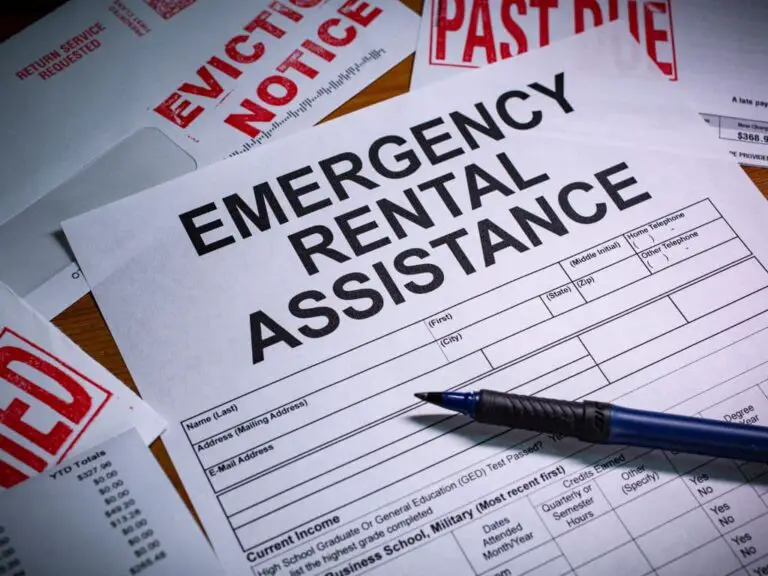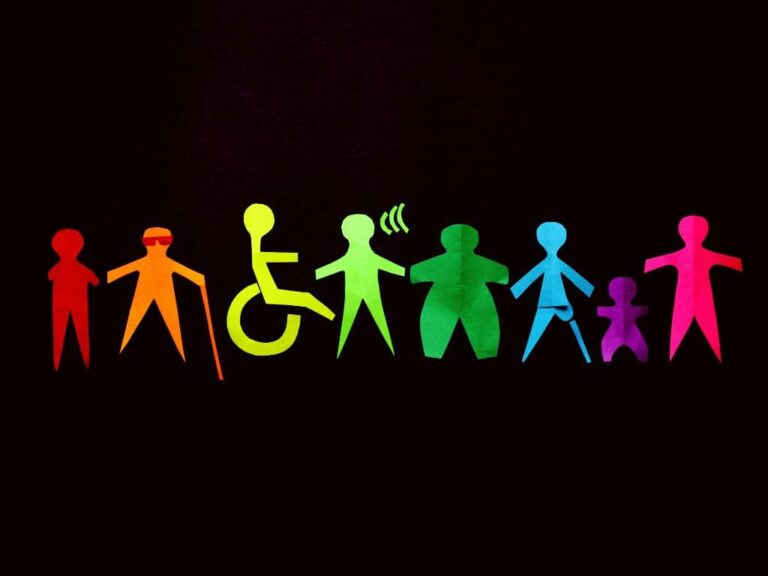Who Qualifies For Assisted Living In Illinois?
Assisted living is a living environment for older adults who require help with daily living activities. These facilities are approved by the Illinois Department of Healthcare and Family Services. So, who qualifies for assisted living in Illinois?
To qualify for the assisted living program in Illinois, an individual must be 65 years or older. He or she must have a physical or mental disability that requires nursing home-level care. Also, their monthly income should be equal to or greater than the SSI (Supplemental Security Income) rate of $1,125 for married residents and $750 for single residents.

If you want to know more about eligibility for assisted living in Illinois, continue reading.
Who Is Eligible for Assisted Living in Illinois?
Assisted living in Illinois is an alternative to nursing home care for seniors who require a more independent living setting. The state has a number of guidelines governing assisted living facilities. Here are some criteria that an individual must fulfill to qualify for assisted living in Illinois.
Age 65 or Older
Assisted living in Illinois is regulated by the state Department of Public Health. A senior’s age can determine whether he or she is eligible. An individual must be 65 years or older in order to qualify for assisted living in Illinois.
Have A Physical Disability
Assisted living is a great way for seniors to remain independent and get the care they need. There are many different types of assisted living facilities to choose from, ranging from small homes with only ten or so residents to large communities with hundreds of residents. Assisted living is for people who are aging or have disabilities and need help with daily living activities. However, in order to qualify for assisted living, an individual must have a physical disability.
Monthly Income
Assisted Living in Illinois can be found in a wide variety of settings. They offer personal care, nursing services, medication assistance, and 24-hour supervision. If you want to qualify for assisted living in Illinois, your monthly income should be equal to or greater than the SSI (Supplemental Security Income) rate of $1,125 for married residents and $750 for single residents.
Eligible For Nursing Home Care
Assisted living facilities are licensed by the Illinois Department of Public Health. Assisted living establishments (ALFs) and shared housing establishments (SHEs) are residential facilities that provide senior citizens with meals, housekeeping, laundry services, and medical care. To qualify for assisted living in Illinois, a person must be eligible for nursing home care.
How Does Assisted Living Work in Illinois?
Assisted Living is a great option for seniors who want a community that offers assistance while still allowing for a high degree of independence. Assisted living facilities in Illinois are managed by the Illinois Department of Public Health. Facilities must meet state guidelines regarding safety, quality, and staffing. They also must have 24-hour supervision. The facility should also have lockable doors and wiring for a private telephone line.
There are several types of assisted living facilities in Illinois. These range from small homes with as few as 10 residents to large communities with hundreds of residents. The size of a facility will depend on the needs of your loved one.
It’s also important to consider the type of services the facility provides. For example, not all assisted living facilities offer memory care for residents with dementia. You should also ask about the waiting list for the facility. Some facilities have long waiting lists.
Assisted living facilities in Illinois have many features. These include 24-hour supervision, personal care services, and medication assistance. They also must have full bathrooms, lockable doors, and heating and cooling controls. It’s also a good idea to tour the facilities. A tour will show you how the community works. You should also ask about the waiting list and get an evaluation.
Another good idea is to look for an assisted living facility that is in a good location. You may want to stay close to family or friends, or you may need to be close to a doctor’s appointment. For example, if your loved one has a catheter, he or she may not be able to go into an assisted living facility. On the other hand, if your loved one has a large group of friends, you may want to look for a community that is close to everyone.
What Is the Average Cost of Assisted Living in Illinois?
On average, assisted living costs $4,488 in Illinois for a private one bedroom in an Assisted Living Facility.
| Service | Monthly Cost |
| Homemaker Services | $5,339 |
| Homemaker Health Aide | $5,339 |
| Adult Day Health Care | $1,885 |
| Private, One Bedroom Assisted Living | $4,488 |
| Semi-Private Room Nursing Home Care | $6,266 |
| Private Room Nursing Home Care | $7,156 |
Financial Assistance for Assisted Living in Illinois
Whether you are looking for assistance with your home care, assisted living, or nursing home, there are several financing options available for you.
Medicare
Does medicare pay for assisted living in Illinois?
Medicare does not directly cover the costs of assisted living facilities in Illinois. Typically, assisted living services include non-medical care such as help with daily activities, personal care, meals, housekeeping, and social activities. These are categorized as custodial care and are not covered by Medicare.
Certain low-income individuals may also seek assistance from Medicaid for assisted living costs. Illinois offers Medicaid waivers that may cover a portion of the costs at an assisted living facility.
Medicare may also cover some related services a resident in an assisted living facility may require. For example, it can cover health services performed in a doctor’s office or hospital, much like Medicare does for beneficiaries in any living situation. Moreover, Medicare Part A would cover short-term stays in a Medicare-certified skilled nursing facility (SNF) post a qualifying hospital stay.
Certain private Medicare Advantage plans can help with related caregiving needs but generally don’t cover assisted living costs either.
The cost of assisted living must mostly be paid out-of-pocket or through long-term care insurance if the individual has such a policy. Some older long-term care policies might pay out smaller benefits for assisted living than for nursing homes, whereas most newer policies cover them at the same rate.
For military veterans, Aid and Attendance benefits available through the VA pension program can also help provide financial assistance for assisted living facilities or nursing homes.
Veterans Benefits
Whether you’re a military veteran in Illinois or you have a family member who is, you may be eligible for Veterans Benefits for assisted living. These benefits are designed to help disabled veterans and seniors pay for their assisted living services. VA benefits vary from state to state, so be sure to check with your local VA office to find out if you’re eligible for a particular benefit.
Life Insurance Policies
Buying life insurance policies for financial assistance for assisted living in Illinois can provide your family with the necessary funds to pay for long-term care. You should discuss your options with a reputable financial advisor. However, keep in mind that financial predators often target older people, so it’s important to do your research.
Long-Term Care Insurance
Choosing long-term care insurance is a good way to help cover the cost of long-term care when you are unable to care for yourself. These types of policies provide protection for you and your family when you need long-term care in an assisted living facility. Long-term care insurance is also a good way to protect your retirement savings.
Reverse Mortgages
Assisted living costs can be overwhelming for caregivers. However, a reverse mortgage can ease the financial burden. There are several programs available in Illinois. The type of reverse mortgage you choose will depend on your situation. You may opt for regular payments, or you may opt for a lump sum.
Free Assisted Living Resources in Illinois
Whether you’re looking for a home for yourself or a loved one, there are a number of free assisted living resources in Illinois that you can turn to.
Long-Term Care Ombudsman Program
Among the many government programs in Illinois, the Long-Term Care Ombudsman Program is one that advocates for the rights of residents of long-term care facilities. Ombudsmen help resolve complaints and improve the quality of services. Ombudsman programs serve residents in nursing homes, assisted living communities, private homes, and shared housing establishments.
Area Agencies on Aging
Assisted living resources in Illinois are available through Area Agencies on Aging. These local organizations provide seniors with guidance and resources to remain at home, including transportation assistance, assistance with household chores, and information on senior programs and benefits. Area Agencies on Aging are public or private nonprofit agencies. They are designated by the state and have responsibility for implementing elder service programs within their geographical boundaries.
Veterans Affairs
Whether you’re a veteran or a veteran-related family member, you can find help with the costs of assisted living. VA offers several free resources that can help you locate affordable care. Veterans can also get free prescription drugs, orthotics and prosthetics, and home renovation grants for disabilities. In addition, VA may cover some long-term care costs for disabled veterans. However, the availability of these programs varies by state.
Conclusion
Assisted living in Illinois is a type of residential care for older adults. In order to qualify for the program, an applicant must be an adult with a physical disability, be 65 or older, and have a functional need for nursing-home-level care. In addition, they must have income above the Supplemental Security Income (SSI) limit.
Frequently Asked Question
-
Who qualifies for assisted living in Illinois?
Are 65 years old or more or suffer from a disability. Your monthly income should be at least equal or higher than the Supplemental Social Income (SSI), rate of $750 per resident for singles or $1,125 for married citizens (as of 2018). You may also qualify for nursing home care, but you can choose to live in an AL setting.
-
Is Chicago good for retirement?
CHICAGO (CBS), Chicago was named the 87th most desirable place in America to retire, according to U.S. News and World Report’s 2021-2022 Best places to retire rankings.
-
How do I get low income housing in Chicago?
Contact an IDHS Service Provider Agency to apply for the Illinois Rental Assistance Program or call Cook County Legal Aid for Housing & Debt, (855) 956-5763. You can check the status of your application here. For questions regarding Chicago ERAP applications, call 312-698-0202.
-
What is considered low income in Illinois?
Illinois Poverty Line The federal poverty limit is used to determine Illinois’s poverty line. The federal poverty level is used by Illinois to determine poverty. This means that the Illinois poverty threshold for four families of four equals $26,200 per year and $2,183 each month.
-
Where do seniors live in Chicago?
Best Chicago neighborhoods for older adults In no particular order, Bill mentions Edgewater/Andersonville, the Loop, South Loop, Near North, Lincoln Park, and Hyde Park as the best neighborhoods for older adults in Chicago.
-
How much does a nursing home cost in Chicago?
The state of Illinois has an average $6,235 per year for nursing home care. However, prices can differ from one place to another. Seniors in Chicago, Illinois’ largest metropolitan area, pay $8,076, while Rockford, Wisconsin, costs only $5,825.
-
How much does in home care cost in Illinois?
According to Genworth’s 2019 Cost of Care Survey in Illinois, the hourly average for Illinois home care services is $23.50 an hour by 2020.
-
What is the maximum income to qualify for Medicaid in Illinois?
ACA Adults: Under the Affordable Care Act (ACA), adult aged 19 to 64 who are not eligible under Medicaid now have medical coverage. Coverage is available for individuals with incomes up to 138 per cent of the federal poverty line (monthly income of $13,66/individual or $1,845/couple).
-
What is the average cost of assisted living in Chicago?
What is the cost of assisted living in Chicago? The cost of assisted living in Chicago is $4,794 per monthly, about $800 less than the $4,030 state average. Rockford, to the east, at $4.770, and Bloomington, north at $4.650 are two nearby cities with similar costs.
-
How do I pay for nursing home care in Illinois?
The state of Illinois may offer payment for long-term nursing home care. You can apply to the Department of Human Services for health benefits.
-
What age is a senior in Chicago?
A person who is 55 or over or nearing 55 and has limited opportunities to work or participate in the community, and finds it difficult or impossible to maintain self-sufficiency or contribute meaningfully in their life, can be called “age” or “senior citizen”.
-
Does Medicare pay for assisted living in Illinois?
The Medicaid program in Illinois covers many Illinoisans’ needs for home and assisted living facilities, as well as nursing homes. Illinois’ long-term care is expensive. This includes assisted living and nursing homes.
-
What is the income limit for Medicaid in Illinois 2022?
The April 2022-March 2023 medically necessary income limit in Illinois is $1,133 per month for individuals and $1,526 for couples.
-
Can Medicare Take your house in Illinois?
Federal law requires all states (not just Illinois) to seek reimbursement from the estate of a beneficiary for Medicaid expenses after their death. It can also include someone’s home. The rule is applicable to Medicaid beneficiaries 55 years and over.
-
What age is considered a senior in Chicago?
Eligibility criteria: Must be a resident of Illinois. Senior citizens 60 years of age or more







